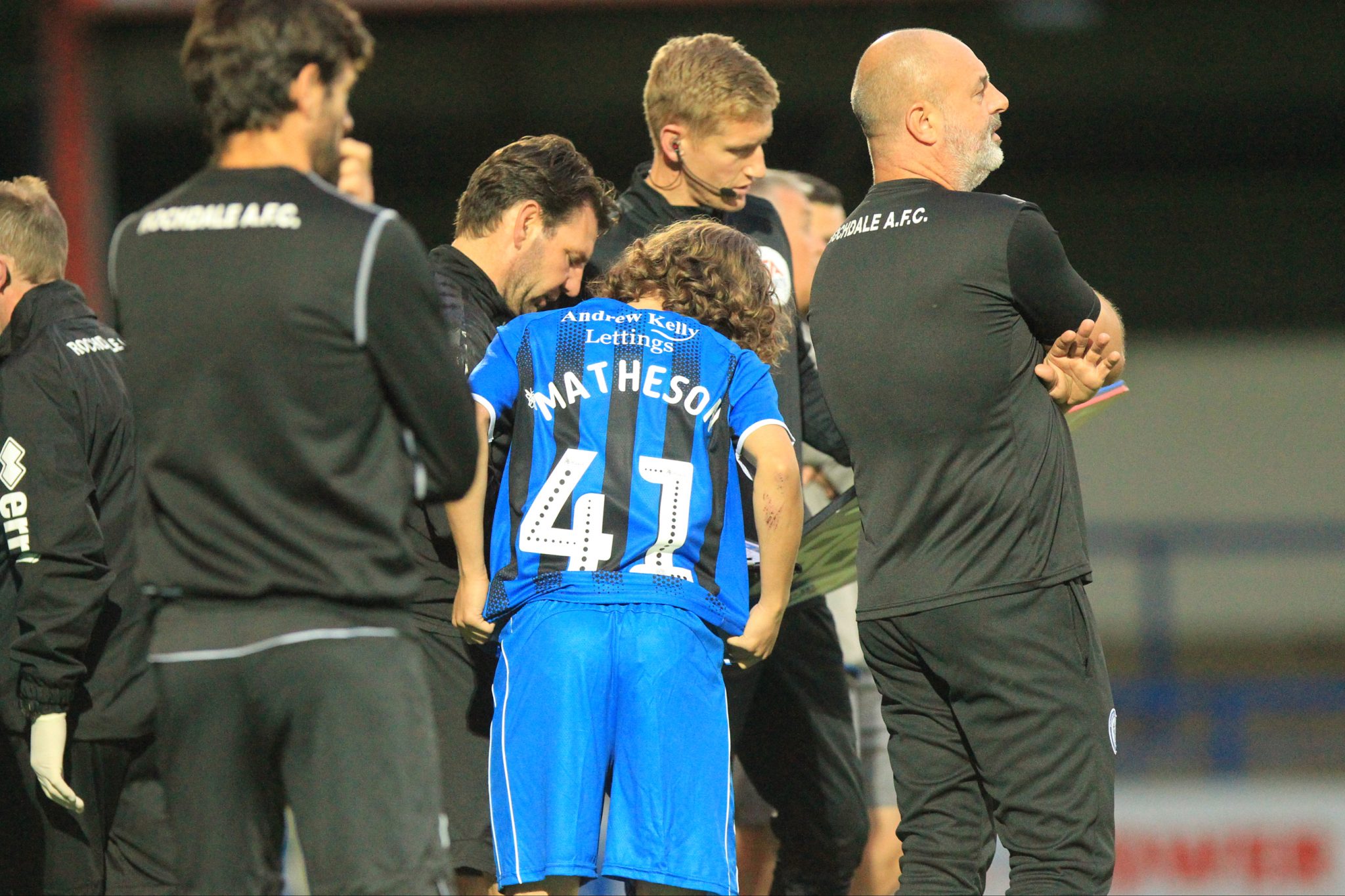We believe the foundation phase is a fundamental stage in the Player Performance Clock and this is where we can nurture players to prepare them for the bigger and more complex game as they get older.
Therefore, we believe academy foundation players need to have the following mix of Technical, Physical, Psychological and Social attributes:
Good, quick feet
A good bank of skills
Good passing & receiving skills
Good A-B-C’s
Be confident and comfortable on the ball
Good Decision Makers
A desire to learn
A desire to be the best
Professionalism
To help players develop these key traits, we must develop and work to an enriched, flexible curriculum, with resources and sessions to nurture future first team players through their individual and collective journey.
The Rochdale AFC Foundation Phase Age Specific Coaching Programmes, and more importantly the Individual Learning Plans, incorporate the”4 Corner Development Model” and will always refer back to the reference point of Attacking / Defending / Transition. However, this is the key stage for “Windows of Opportunity” and therefore the Physical, Psychological and Social Corners can be truly developed.
This can be done in the Foundation phase, however, it needs to be broken down to align to the age group characteristics and development of Key Stage 2 children (U8 – U11), and Learning Objectives must reflect this.
To add to that, we also believe in order to develop players who are confident and comfortable in possession, players should be exposed to all situations and areas of the pitch and not be position specific in the foundation phase.
That said, some players will excel in a certain position or unit and should be nurtured to enhance their development. Also, players must be prepared for the bigger game, and this can take place mostly at U11 & U12. (Our Under 12’s are mainly supported through the Foundation Phase but through our Phase Transition Strategy we also plan for their development into the Youth Development Phase).
In the Foundation Phase, the coaching programme should provide the framework for coaches to source challenging sessions to enable players to develop and put their learning to the test in 5 v 5, 7 v 7, or 9 v 9 development games.
Sessions should be motivating for all, enriching and productive. A high proportion of contact time of each session should be made up of Technique – Ball Mastery – Passing, Receiving & Possession, with the remaining time used for game understanding and maybe reviewing the previous game.
Game formats in the Foundation Phase are usually 5 v 5 and 7 v 7 at Under 9 and 10, and 9 v 9 at Under 11 and 11 v 11 at Under 12.
In the 5 v 5 game we would usually play 1-2-1 rotating. This gives players the basic shape and backbone of the team with a Goalkeeper, Centre Half, 2 x Central Midfielders and a Centre Forward.
In the 7 v 7 game we are flexible with formations but we tend to play 2-3-1 adding another Centre Half and a Midfielder to build up to the 11 v 11 game with the Right and Left Midfielders acting as wing backs. In the 9 v 9 games we add 2 x Midfielders as Number 8’s or 10’s to make up a 2-3-2-1.


